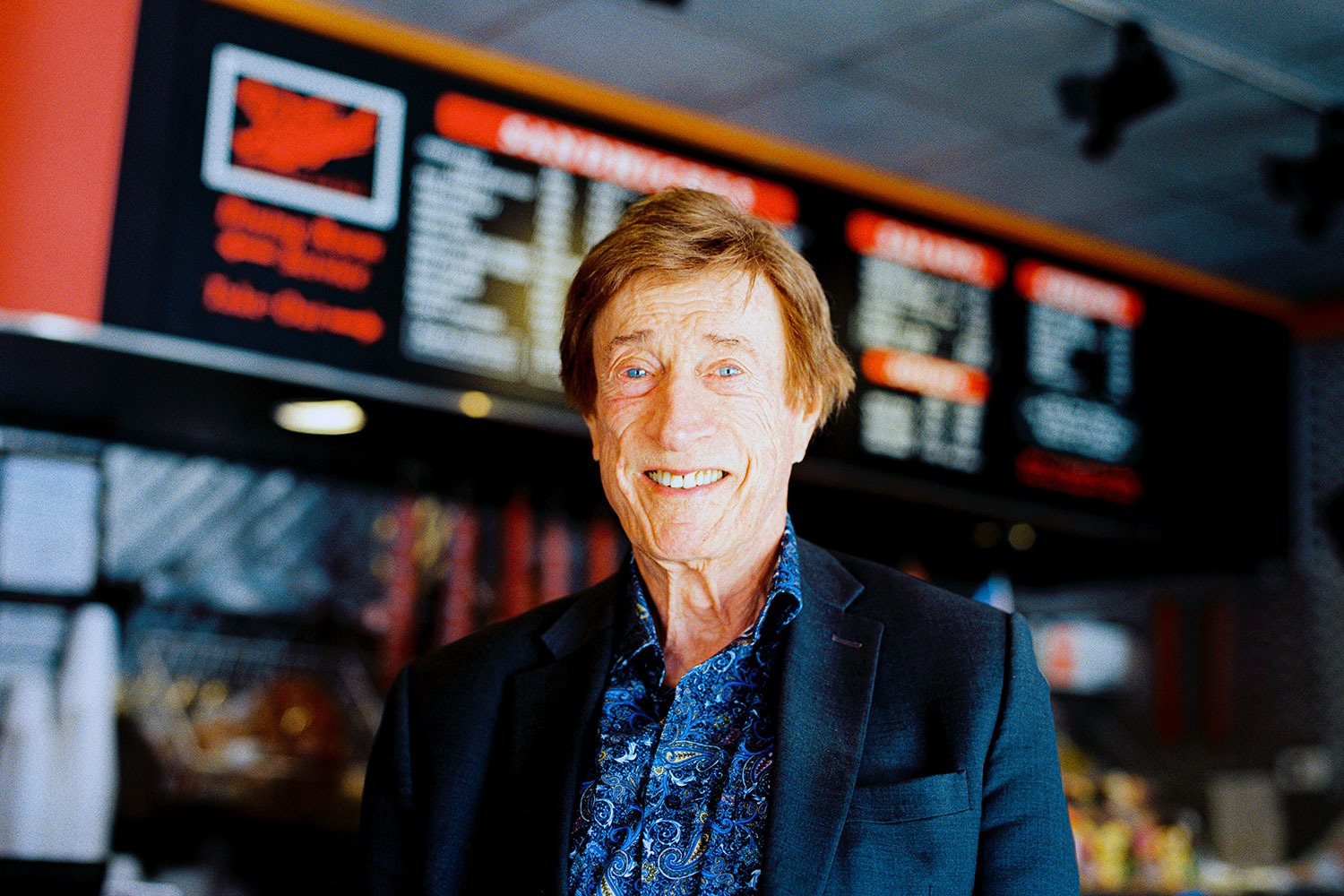Sometimes, customers stopped by Lake View’s The Bagel Restaurant and Deli just to see Danny Wolf, the thin, bright-blue-eyed patriarch of a 72-year-old family business. On July 3, Wolf died at 77 years old. (His widow declined to comment on the cause of death, but an employee of The Bagel said it was “unexpected.”) Liberated from a Czech concentration camp in 1945 as in infant, Wolf became a Chicago legend who turned The Bagel into a haven for Holocaust survivors and those experiencing houselessness.
The deli was Wolf’s life. His psychology degrees gathered dust as he preferred to spend his time at The Bagel with his loyal customers. Before its current location in Lake View, The Bagel had three previous homes in Albany Park, West Rogers Park, and Skokie. Even when The Bagel jumped from neighborhood to neighborhood, Wolf never wavered from his haimish hospitality.
In an era of quick meals, take-out food and cheap eats, Wolf’s slow-and-steady approach to classic, quality dishes like matzo ball soup and pastrami on rye shaped The Bagel into an uncompromising institution of Jewish comfort fare. It will remain open in his honor.
The following interview, on June 27, would be one of his last. Some of what he talked about, such as feeling a responsibility to carry on a cultural legacy, bears extra poignancy in hindsight.
Let’s start with the history. The Bagel has moved a few times since it first opened, and it was started by Holocaust survivors.
Yes, by my parents and grandparents. And I’m actually the youngest Holocaust survivor you’ll ever meet. I was an infant survivor of the Holocaust. I was born at the end of the war. I was liberated when I was 10 months old with my mother in Czechoslovakia, at Theresienstadt.
Did you come to America when you were a baby?
I was 5 years old. I couldn’t quite get here as easily as you probably are aware. Immigration, as it is today, wasn’t easy at that time.
What was it like growing up immersed in the deli culture from a young age?
I really didn’t know much else. My father taught me to type when I was 7 so I would type the daily dinner menu when I got home from school. I did things around the restaurant — washing dishes, sweeping floors, taking money at the cash register when I could reach it, and knowing how to make change without giving away money. I was always interested in watching the cooks and learning from them, who were old Jewish women at that time.
I remember one of the cooks, Francis, an older Jewish woman. She is of course younger than I am now, but at that time she seemed like she was ancient. She was showing me how to make the gefilte fish and how to mix it. There were no mixers or Cuisinarts or anything like that. I was mixing it, gloves on my hands, and I asked how long I had to keep going. She said until my arms got tired. That was the recipe.
At what age did you start working in the kitchen?
I was always somewhere in the restaurant, one place or another. I went to school, got degrees in psychology, but discovered that this is my first love and I still have a passion for it. I still enjoy doing it and I’m in my 70s now. I’ve got friends that are retired, and I love coming in every day.
What about The Bagel sets it apart from other delis in the city?
Longevity is one thing. We’re dealing with second-, third-, and fourth-generation customers and they’ve got a proprietary interest. They feel like owners of the business. It’s part of their lives, their background, and their history. Some people used to come in with their grandparents and now they bring their own children. And then when I say I remember their grandmother and I tell them what she ate, you can see our bond.
There are also some things like our gefilte fish, which is homemade and not out of a jar. Same thing with our beet borscht and matzo ball soup, made right here on the premises. You go to most places and they buy it from someone and they resell it. We even still use schmaltz in our recipes.
What are your favorite items on the menu?
That’s difficult. The homemade beet borscht is one of my favorites in the summertime. The lokshen kugel noodle pudding is good comfort food. And of course I like corned beef or a reuben sandwich.
Do you take any influences from New York delis? Or is this strictly Chicago-style?
In New York delis, it’s about gigantic proportions — not necessarily about quality, but quantity. I think in Chicago, it’s more of a haimish atmosphere. You want to feel comfortable here. There once were a lot of people, especially men that were Holocaust survivors, who lived alone and had no family or wives. They were my regulars.
Is it difficult these days, more so than the past, to maintain the same level of quality?
We’re very fortunate in that way because we’ve had the same people doing the cooking. They’ve all got between 25 and 35 years with us. They retire or they die, to be blunt about it. We had one waitress that worked for us from the time we opened in 1950 until 2005. Fifty-five years. She was still waiting tables at the age of 90. Now we have a second and third generation of employees working here.
That must make you feel reassured that things are in good hands.
I just got back from a cruise to Alaska. I didn’t have to worry about anything.
Beyond the food, how do you, and The Bagel, uphold Jewish culture?
Someone once referred to me as a keeper of the flame. So when places like this go, something does die, of course. It’s not the same anymore.



